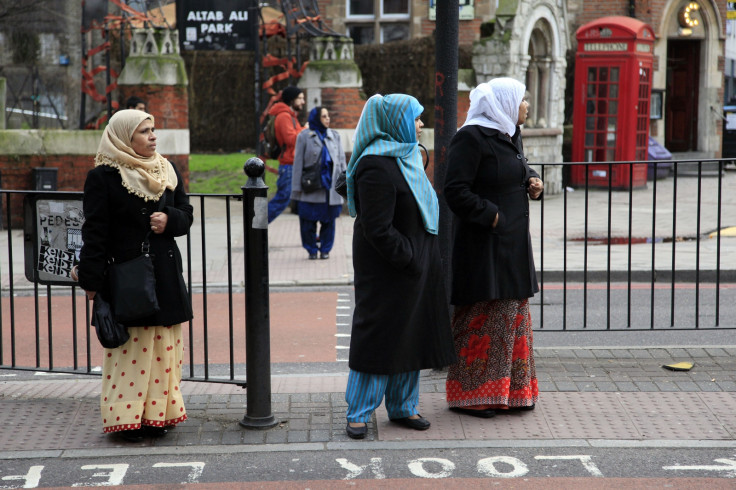Right to ban Muslim headscarves in workplaces 'will apply in post-Brexit UK'
Experts on religion and employment law say ruling is unlikely to be overturned after Britain leaves EU.

A controversial ruling by Europe's highest court allowing employers to ban religious garments and symbols – including Muslim headscarves – will likely apply in the UK, experts told IBTimes UK.
The European Court of Justice (ECJ) ruled yesterday (14 March) that the ban does not constitute religious discrimination, if it is based on internal company rules that apply to all employees equally and require them to "dress neutrally."
The verdict was delivered after both a Belgian woman and a French woman claimed they had been unfairly sacked after refusing to remove their headscarves at work.
"It applies to the UK until we leave the EU, and since it is going to apply for two years, in terms of our equality law, the courts will continue to apply it," barrister Neil Addison, an expert on UK religious law, told IBTimes UK.
"The way I would see the changeover happening is the law in force at the eve of Brexit will continue in force."
He said that it was unlikely a British court would overturn the ruling after Brexit.
"There would have to be a very good reason and the judgement seems to me to be pretty reasonable. It is saying you can ban religious and political symbols as long as you are neutral about it," he said.
In 2012, Sikh Guardsman Jatinderpal Singh Bhullar was given permission by the Ministry of Defence to wear his turban instead of traditional regimental headgear while standing guard outside Buckingham Palace. Addison said that following the ECJ ruling, in such a case the British military would have grounds to compel soldiers to wear traditional military headgear.
However he said that businesses and other organisations should not interpret the ruling to impose bans on religious clothing after customer complaints.
"It has been a problematical issue, and what the ECJ decision makes clear is that companies do have that right [to ban religious clothing]. What it has also made clear is that it does not have the right to ban that because the customer objects."
In 2007, a British Airways worker challenged a ban on crosses being worn by staff while hijabs and turbans were permitted. The ban was dropped, and the company revised its policy to allow all religious symbols to be worn openly.
Addison said that British law worked on a case-by-case basis, and the ECJ ruling allowed national courts to determine the facts in individual cases.
"We tended to go for the grounds of reasonable and proportionality, so we have tended to disapprove of a blanket ban but have tended to accept it in certain cases depending on the nature of the employment, so I don't think is going to change the law dramatically for us," he said, and cited the 2006 case of a female teacher who was banned from wearing a veil, but allowed to wear a hijab in school in Dewsbury.
Anthony Fincham, employment partner with CMS Cameron McKenna, said that a ban across a company could bring a rash of legal challenges.
"In the UK we have accepted differences — for example Sikh headgear on construction sites and children carrying ceremonial Sikh knives into schools — we tend to be more adaptable," he told The Times.
"I think our courts would shy away from an absolutist position... and we would be left with case-by-case testing of the employer's reasons, as is consistent with the ruling."
Jonathan Chamberlain, an employment partner at Gowling WLG, said: "The decision brings EU law into line with what has been the UK's approach for some years. For example, it's fine for employers to have a dress code but it needs to be applied with some sensitivity and flexibility to take account of religious beliefs.
"What is almost certainly never OK is for an employer to tell an employee to stop wearing a religious symbol because a particular customer has asked for it."
Muslim organisations have criticised the ruling.
The Islamic Human Rights Commission said that the ruling set an "alarming precedent", while the Muslim Council of Britain said: "It is a sad day for justice and equality."
The ruling came after Samira Achibta, a receptionist, was fired for wearing a headscarf to work at the company G4S in Belgium. In the second case, Asma Bougnaoui, a design engineer, was fired from an IT consultancy in France after a customer complained about her wearing a headscarf.
© Copyright IBTimes 2025. All rights reserved.






















